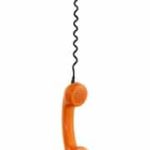How to Assure Success When the Phone Rings
 It's frightening. We've seen 6-figure marketing programs go down the tube six seconds after the phone rang. In each case, the carefully crafted advertising produced dozens of prospective patient calls to the practice, but none – repeat none – of these callers became patients.
It's frightening. We've seen 6-figure marketing programs go down the tube six seconds after the phone rang. In each case, the carefully crafted advertising produced dozens of prospective patient calls to the practice, but none – repeat none – of these callers became patients.
Why? Because they never got past the first phone call, much less into the office.
And what's worse, it didn't have to happen.
The initial telephone contact is the open doorway to your practice, and usually the first contact for new patients – but 90% of healthcare business, fail at properly handling patient inquiries. Statistically, 200 or more potential cases are lost every year due to poor phone conversion skills.
Does any of this sound familiar? Your staff is:
- Untrained or insufficiently trained for the task
- Distracted and/or unfocused on this task and its importance
- Unprepared, confused and sometimes offended regarding questions about the practice or organization
- Overwhelmed by competing priorities and tasks
- Unmotivated and/or resentful of management because of the above, and
- Uninformed about your marketing program and/or current advertising
When prospective new patients call, they are simply evaluating your practice. And they assume that the way they are treated on the phone is a good indication of how they would be treated in your business.
The fact is you may be setting up your staff to fail. Here's how to turn that around:
Let everyone in the office know there's nothing more important than a new patient inquiry. Properly handling phone calls and converting them to new patients is a priority for the entire office. Let everyone know why, and let them know the specifics of the marketing efforts that will be making the phone ring.
Set up the front desk to win. You want your "A-team" to have the training and tools for success. Remember, having no phone shoppers is a bad thing.
- Nominate your best phone person as the primary "go-to" with designated alternates
- Coach them about how to handle calls and why it's important
- If volume warrants, hire someone with sales experience
- Script the front desk
- Consider incentives
Prepare a script for the front desk; plan the conversation and rehearse. A script is a valuable training and support tool that helps focus and direct the conversation toward the objective.
The key ingredients include:
- Establish rapport. (Personalize the conversation; be friendly, extend understanding.)
- Probe for the reasons for the call. (Use active listening and discovery questions.)
- Track the source of referral. ("Whom can we thank...")
- Establish value in answer to need/interest. (Let them know how the office will help.)
- Invite the caller to make an appointment. (Work to meet their schedule.)
- Answer objections or additional questions.
- Schedule appointment or send information and refer them to your web site.
Don't take phone skills for granted. Everyone uses the phone, but not everyone uses it well. Using a tape recorder or role-playing can benefit even the most experienced individual.
Take your time and avoid sounding rushed. Treat the call as the most important thing you have to do. (It's probably the most important thing the caller has to do.)
Work to engage the patient and build rapport during the first few minutes of the call; express understanding and helpfulness.
LISTEN FOR THE PHONE–it's the sound of success.
Incoming calls and new patients are exactly what the practice is all about. And how that first call is handled will set the stage for what happens next. The caller wants to find a helpful, convenient and lasting resource. Help them have a good experience from the first word.









